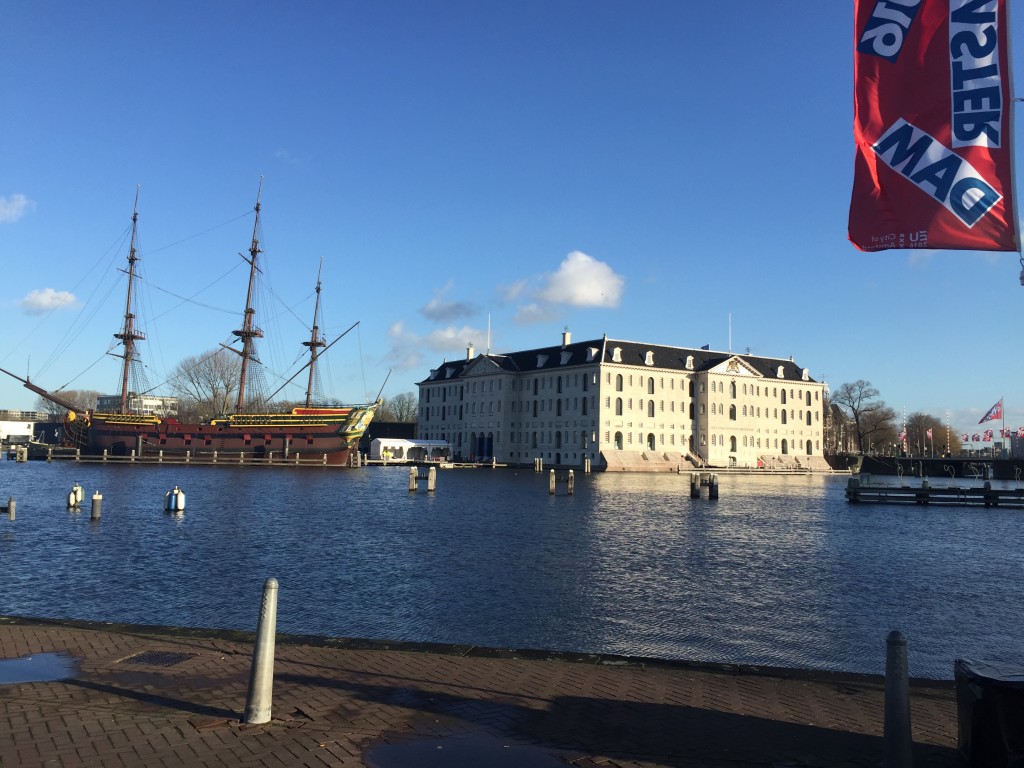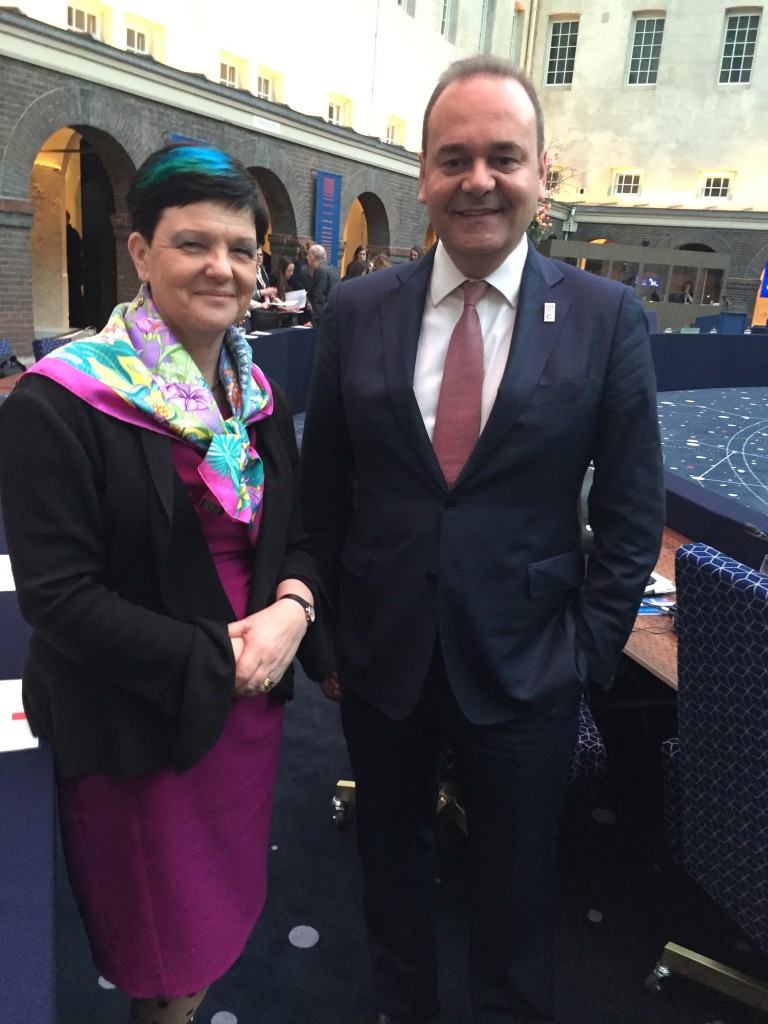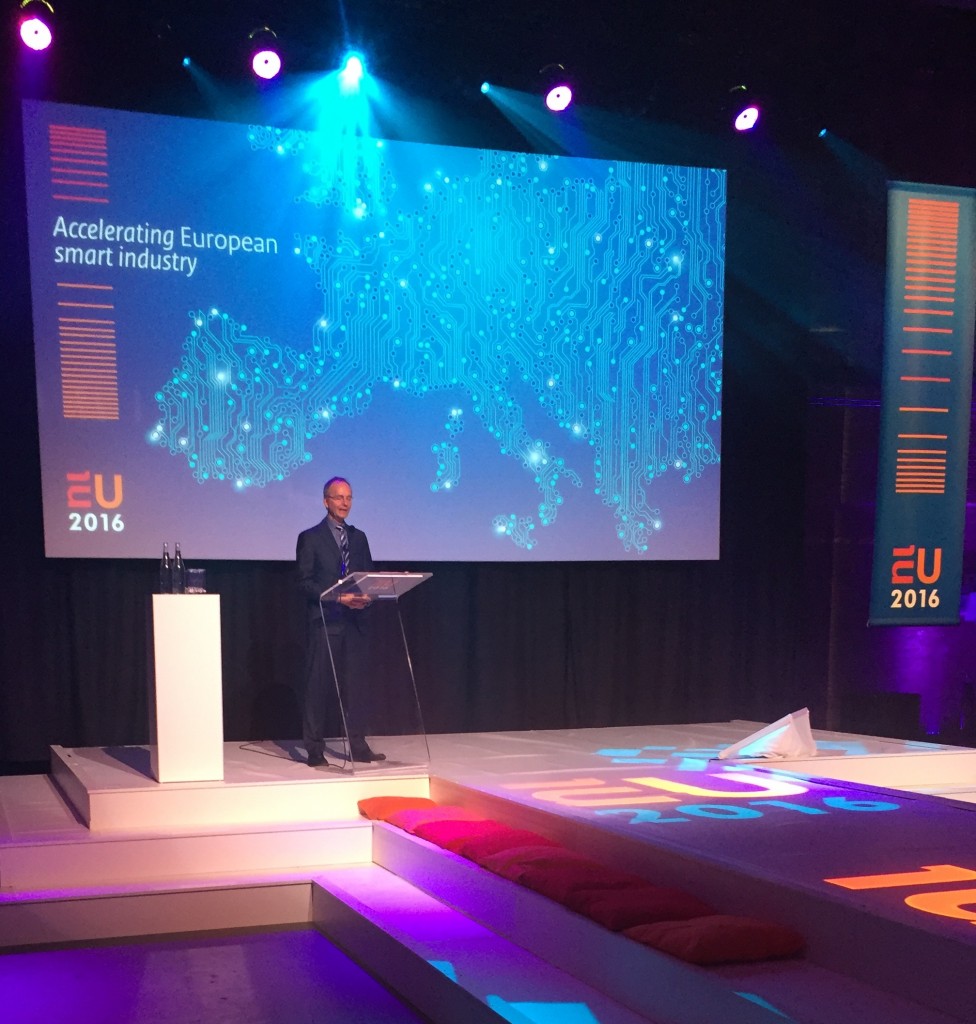We are delighted to host a guest post from Blake Bower, Deputy Director for EU Strategy at the Department for Business, Innovation and Skills. Blake will explore why we attend these meetings and what they are for.

I accompanied Baroness Neville-Rolfe, BIS Parliamentary Under-Secretary of State and Minister for Intellectual Property, to a recent informal meeting of the EU Competitiveness Council. The overall competitiveness of the EU is a top priority for the UK. The potential of the EU single market is huge. The meetings of the Council are a great opportunity for us to hear from and influence other Member States on how to fulfil this potential.
De-mystifying the Council of the European Union
It may be helpful if I clarify some of the confusion that can surround the various EU institutions.
The Council of the European Union (sometimes referred to as the EU Council) is one of the key decision-making bodies of the EU – the other being the European Parliament. It is sometimes confused with the European Council (which is a summit attended by leaders where the broad direction of policy is decided).
The EU Council acts as the voice of Member States to discuss, negotiate law and coordinate policy. Given the large number of issues, the EU Council meets in a number of different formations (Competitiveness, Justice and Home Affairs, Environment, and Economic & Financial Affairs to name just four). Ministers represent their country and have the authority to commit their governments to the actions agreed on in the meetings. They are also authorised to cast their country’s vote when one is called.
EU Council meetings are chaired by the Minister from the country which holds the rotating presidency of the Council. The presidency rotates around all Member States every six months. At the moment the Netherlands holds the presidency so we attended the meeting in Amsterdam to discuss a range of issues including the deepening of the single market for services and the opportunities offered by the collaborative economy (defined as the use of online technology to help people share resources, time and skills more efficiently).
After a slight delay, and a lot of turbulence, we arrived in Amsterdam. We were taken to a large warehouse-style location where, after a quick hello from Prince Constantijn of the Netherlands, delegations from all 28 Member States shared a “walking dinner” (imagine canapés but a lot bigger) with entrepreneurs from across the EU. Over dinner we heard first-hand from business their views about how the EU can support innovation.
This was a really successful innovation by the Dutch, and brought home to us the real-world impact that these meetings can have on millions of businesses across the EU.
The Informal Competitiveness Council Meeting
The following day we boarded a barge to attend the Council meeting at the Netherlands' National Maritime Museum – a beautiful venue and thankfully the sun came out for us. Baroness Neville-Rolfe attends the Competitiveness Council whenever possible and as a result she is a familiar face to most other countries who make a beeline to wish us a good morning and have a quick catch up before formal proceedings start. It makes a rather intimidating setting a lot more inviting and friendly, but before long we took our seats in the plenary and got down to the business of the Council meeting.

Baroness Neville-Rolfe Meets Fellow Ministers (Licence: Creative Commons Attribution Blake Bower)
After the plenary Ministers met in smaller groups to discuss specific areas of policy such as how to take forward work to prevent unjustified geoblocking (the use of digital barriers or restrictions by retailers based on a consumer's nationality or place of residence). For the UK and other Member States it’s an opportunity for us to share economic analysis, experience from our own countries and set out our ideas about how best to address the issues at a European level.
After these in-depth sessions we were back to plenary to consider the collaborative economy. New and innovative business models are creating more choice for consumers and increasing flexibility for workers. The UK has already taken steps to help the collaborative economy to grow and thrive, and others are keen to learn from our expertise. It was good to hear others offer support for the idea of Europe becoming the hub of this kind of creativity.
Ministers are busy people so these meetings are rare opportunities to develop policy between all Member States and to shape each other’s thinking. Baroness Neville-Rolfe spoke to a range of EU Ministers and Commissioners. The meeting covered a lot of ground and soon we were back at the airport, leaving in the knowledge that we had taken some important steps forward for jobs and the economy in Europe. These discussions will feed into proposals that we’re expecting to see from the Commission over the summer.

Next Steps and Further Engagement
On returning from these meetings Ministers provide an update to Parliament and these are available publically. You can read the written statement here. We would be really interested to hear any of your questions or comments on this issue.